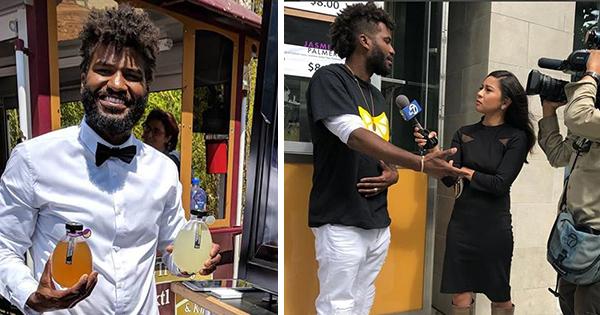Examining Racial Bias in Policing: The Case of a Black Entrepreneur’s Lemonade Stand in San Francisco
Police Intervention Raises Questions About Racial Profiling and Law Enforcement Practices
Recently, a Black man operating a lemonade stand in a bustling San Francisco neighborhood became the subject of a police call, igniting a nationwide conversation about racial bias in policing. This incident has drawn sharp criticism from civil rights groups and local residents who see it as emblematic of a larger pattern of racial profiling. Such encounters highlight the challenges Black entrepreneurs face and raise urgent questions about how law enforcement interacts with minority communities during routine activities.
Central issues fueling this debate include:
- Frequent police scrutiny of minority-owned small businesses engaged in everyday commerce
- Disproportionate threat assessments influenced by racial stereotypes
- The pressing need for comprehensive implicit bias and cultural sensitivity training for officers
- Enhancing community-police collaboration through inclusive, trust-building initiatives
| Group | Viewpoint | Recommended Measures |
|---|---|---|
| Neighborhood Residents | Growing mistrust due to repeated racial profiling | Implement community-driven policing programs |
| Police Officials | Balancing public safety with community relations | Mandatory bias awareness training and accountability frameworks |
| Advocacy Groups | Call for deep-rooted systemic reforms | Policy overhaul and increased transparency |
Consequences of Racial Profiling on Black-Owned Businesses in Urban Communities
The recent police response to a Black entrepreneur’s lemonade stand in San Francisco underscores the persistent obstacles Black-owned small businesses face in urban areas. Such incidents disrupt business operations and foster feelings of vulnerability and injustice among owners, often deterring entrepreneurial efforts within these communities. The ripple effects extend beyond individual businesses, negatively impacting local economies by diminishing customer confidence and reducing community engagement.
Notable impacts of racial profiling on Black-owned enterprises include:
- Revenue losses caused by interruptions and negative publicity
- Increased psychological stress and emotional toll on proprietors
- Damage to reputation and strained relationships with customers
- Limited opportunities for networking and partnerships with other local businesses
| Area of Impact | Business Effect |
|---|---|
| Customer Trust | Decline in community engagement and patronage |
| Operational Continuity | Frequent disruptions and safety concerns |
| Community Collaboration | Reduced shared resources and support networks |
San Francisco Community Leaders Demand Structural Change and Policy Overhaul
Following the incident involving the Black lemonade stand operator, San Francisco’s community advocates and officials have amplified calls for systemic reforms to address racial inequities in policing. Eyewitnesses and activists stress that such police responses are symptomatic of entrenched biases disproportionately affecting people of color, deepening the divide between law enforcement and marginalized neighborhoods. These events are part of a broader pattern that necessitates comprehensive policy interventions focused on justice and equity.
Key proposals from local leaders include:
- Mandatory anti-bias education for all law enforcement personnel to confront and reduce racial prejudices.
- Enhanced transparency and accountability through civilian oversight boards and public reporting.
- Community-centered safety programs emphasizing de-escalation tactics and supportive engagement rather than punitive measures.
A 2023 report by the San Francisco Human Rights Commission revealed stark disparities in police call demographics across neighborhoods:
| Neighborhood | Number of Police Calls (2023) | Percentage Involving People of Color |
|---|---|---|
| Tenderloin | 1,250 | 85% |
| Mission District | 980 | 78% |
| North Beach | 430 | 30% |
Building Bridges: Effective Approaches to Foster Trust and Equity in Local Business Environments
Strengthening relationships between neighborhood businesses and their communities demands deliberate efforts centered on openness and mutual respect. Facilitating transparent communication channels where residents can share their experiences and concerns is vital. Regularly scheduled town halls, community forums, and informal gatherings serve as platforms to clarify business intentions and dispel misconceptions, transforming neighbors into allies rather than skeptics.
Recommended strategies include:
- Organizing open house events that invite community members to learn about business operations and values.
- Displaying clear signage detailing product origins, pricing, and community engagement initiatives.
- Collaborating with local equity-focused organizations to promote cultural awareness and inclusivity.
Equally important is the implementation of equitable service policies ensuring all customers and neighbors receive respectful treatment. Establishing transparent complaint mechanisms and prioritizing staff training on cultural competence and implicit bias are essential steps. Regular community feedback and public reporting on progress foster accountability and reinforce trust.
| Approach | Example of Execution | Anticipated Benefit |
|---|---|---|
| Implicit Bias Workshops | Employee training sessions focused on recognizing unconscious prejudices | Enhanced customer relations and fewer service complaints |
| Community Practice Audits | Biannual independent evaluations of business conduct | Greater transparency and increased neighborhood confidence |
| Feedback Systems | Anonymous suggestion boxes and online surveys | Ongoing improvements informed by direct community input |
Conclusion: Advancing Equity and Trust in Community Policing and Local Entrepreneurship
The San Francisco lemonade stand incident has once again brought to light the persistent issue of racial profiling and its impact on community policing and Black-owned businesses. As public discourse continues to emphasize the importance of equity and the right to engage in everyday commerce without prejudice, there is a growing demand for law enforcement agencies to adopt training and policies that foster mutual respect and understanding. This community-driven momentum highlights the urgent need for systemic reforms that enable all individuals to participate fully and fairly in public life.




